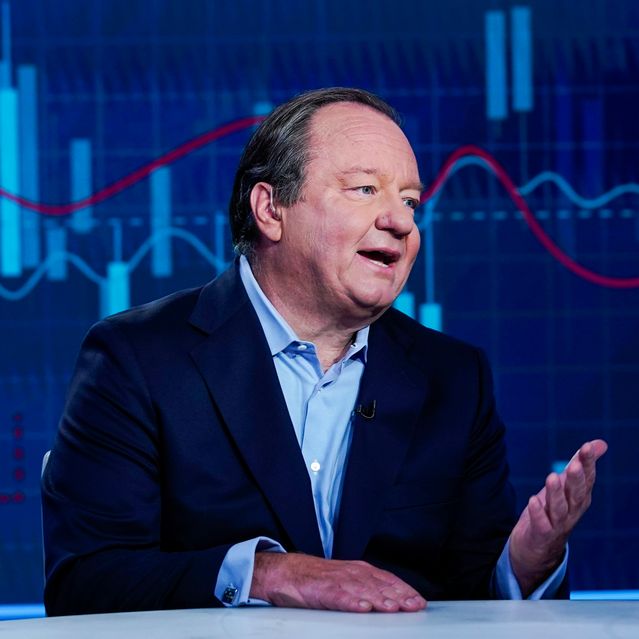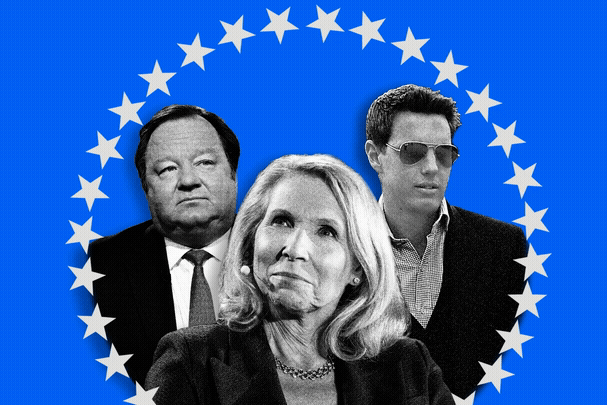April 28, 2024 7:27 pm ET
Shari Redstone had made the decision to cash out.
As the media heiress overseeing Paramount Global, the parent company of CBS, MTV, Nickelodeon, and the Paramount film studio, Redstone began seriously considering selling the business last year.
Feeling the impact of the entertainment giant’s decline, particularly when management slashed the dividend that had long provided income for the Redstone family, she began contemplating her options. Sharing images of the house she was constructing in Turks and Caicos, and fueled by the events of the October 7th attacks on Israel, which spurred her to devote more attention to combating antisemitism, Redstone found herself ready to pass on the reins of a media empire her family had helmed for nearly four decades.
However, the path to a deal proved far more tumultuous than expected.
In recent weeks, Redstone’s pursuit of a merger has devolved into one of the messiest merger sagas in recent memory, with the fate of an American icon—home to cinematic classics like “Titanic,” “The Godfather,” and the “Indiana Jones” franchise—hanging in uncertainty.
Shareholders are pushing back against the proposed Skydance merger, highlighting a longstanding tension within Paramount: what benefits the Redstone family may not align with the interests of other investors.
Adding to the chaos, tensions between Redstone and Paramount CEO Bob Bakish have escalated, possibly leading to his imminent departure from the company. Paramount is anticipated to announce the formation of an interim “Office of the CEO” comprised of divisional heads.
Even without this turmoil, selling Paramount would be a formidable challenge, given its decline over recent years. The collapse of the cable TV industry has hit Paramount hard, and its struggle to find profitability in the streaming era has exacerbated its woes. Under Redstone’s stewardship, the company’s market value has plummeted by 80% in the past eight years, dealing a significant blow to her family’s wealth.

Shari Redstone at investment bank Allen & Co.’s annual conference, which draws moguls to Sun Valley, Idaho. PHOTO: KEVIN DIETSCH/GETTY IMAGES
Paramount has encountered opportunities to dismantle and offload its most coveted assets over time. According to sources familiar with the matter, both Netflix and Apple expressed interest in acquiring the Hollywood studio business, while former Showtime executives made substantial offers for the channel, and Comcast explored the prospect of a streaming partnership.
While Redstone entertained certain deals, such as selling Showtime, she harbored hopes that a major buyer—possibly a tech behemoth—would emerge to acquire the entire company, encompassing the struggling cable channels. However, such a scenario failed to materialize.
“The aspiration for any company in this sector is to be acquired by Apple, but that’s not a viable strategy,” remarked Robert Fishman, an analyst at MoffettNathanson.
Presently, Redstone finds herself in a less favorable position as the company assesses its alternatives. Paramount has engaged in exclusive discussions with Skydance regarding a potential transaction, anticipated to yield over $2 billion in cash for National Amusements, the holding firm that controls the family’s 77% voting interest in Paramount and a string of cinemas. Non-voting shareholders of Paramount would receive shares in the newly merged entity.
With Redstone’s current Paramount stake valued at around $750 million, a Skydance deal would represent a significant premium. However, a group of shareholders has voiced apprehensions, suggesting it could disproportionately benefit Redstone. Skydance purportedly presented a revised offer on Sunday, although specific details remain undisclosed.
An independent board committee has been appointed to evaluate the proposed Skydance deal. National Amusements issued a statement indicating its commitment to abide by the committee’s decision regarding the attractiveness of the transaction for Paramount and whether to proceed further. Sources familiar with the discussions revealed that National Amusements is open to making the deal contingent upon the approval of a majority of non-Redstone shareholders.
Meanwhile, Paramount is exploring another potential avenue. Apollo Global Management, a private-equity behemoth, has tendered a $26 billion offer, comprising approximately $12 billion in equity along with the assumption of debt. However, the board has expressed reservations about Apollo’s bid, particularly regarding its ability to secure financing for the transaction. Subsequently, Apollo has engaged in discussions with Sony Pictures about the possibility of jointly pursuing a bid.

Paramount CEO Bob Bakish during an interview with the Fox Business Network in 2022. PHOTO: EDUARDO MUNOZ ALVAREZ/ASSOCIATED PRESS
An Apollo deal could potentially offer Paramount shareholders a more enticing prospect: a cash payout. However, it wouldn’t provide Redstone with the substantial premium that Skydance is proposing.
Bakish has reportedly expressed concerns about the Skydance transaction to close associates. Together with his management team, he explored alternatives, seeking counsel from industry heavyweight Aryeh Bourkoff, who heads the boutique investment bank LionTree.
Earlier this year, Bakish floated a proposal to raise equity capital aimed at acquiring all voting shares in Paramount, including those held by Redstone. This move would have allowed Redstone to cash out and eliminated the company’s dual-class share structure, ensuring equal footing for all shareholders. However, Redstone showed little interest in the proposition, according to insiders.
In mid-April, both Redstone and Bakish attended the retirement celebration for Sean McManus, CBS Sports’ chair, at The Grill in New York City. Despite being present at the same event, they reportedly had minimal interaction, as noted by one attendee.
As the merger saga unfolds, Paramount finds itself in a quandary: its streaming segment, anchored by Paramount+, is experiencing rapid growth but incurred $1.7 billion in losses last year. Meanwhile, the TV business, although shrinking, remains a significant source of the company’s profits. Paramount is scheduled to report its quarterly earnings on Monday.
The company is engaged in critical negotiations to secure carriage of its cable channels—such as Comedy Central, BET, MTV, VH1, among others—by cable behemoth Spectrum, as the current contract expires at the end of April.
In anticipation of a potential deal failure, Paramount has initiated contingency planning. Recently, top divisional heads presented a strategy to reduce costs by over $2 billion while ramping up investments in content. This includes divesting cable network BET and non-CBS-affiliated Paramount TV stations and establishing a streaming joint venture. The overarching objective is to trim Paramount’s approximately $14 billion debt burden, according to insiders familiar with the presentations.
A Reluctant Seller Turning 70 this month, Redstone endured a tumultuous battle to inherit her father Sumner Redstone’s media empire, overcoming rival executives, nurses, and his companions along the way. Her strong sentimental attachment to Paramount is evident.
“Shari Redstone worked really hard to get the family business in her hands, so there must be a lot of personal tie-in to this whole endeavor,” remarked Tim Nollen, an analyst at Macquarie, who has maintained a bearish outlook on Paramount. “It’s easy to say you should have broken it up or sold, but maybe it wasn’t that easy with that in mind.”

Shari Redstone, center, and Bob Bakish, to her right, pose with TV personalities after ringing the bell at Nasdaq in celebration of the Viacom-CBS merger in 2019. PHOTO: MICHAEL NAGLE/BLOOMBERG NEWS
As her father’s health declined significantly by 2016, Redstone stepped into the de facto leadership role at CBS and Viacom, two distinct entities within the family’s portfolio, collectively valued at around $40 billion. Had Redstone opted to sell her family’s stake in each company back then, securing a premium akin to what Skydance is offering presently, she could have walked away with over $10 billion.
Viacom, once the crown jewel of the Redstone empire, faced mounting pressure as cord-cutting accelerated and its heavy reliance on cable TV became a liability. Between 2013 and 2018, the company saw its market value plummet by over $25 billion. In contrast, CBS held a relatively stronger position, buoyed by its top-rated broadcast network and lucrative rights to NFL broadcasts.
When Shari Redstone pushed for the reunification of Viacom and CBS, she encountered resistance, with some cautioning that the healthier CBS side might suffer. “If one of your kids is sick, do you make them sleep in the same room or do you separate them?” one individual involved in the discussions recalled asking her.
Undeterred by such concerns and believing that scale would foster success in a media landscape dominated by Netflix, Redstone proceeded with the merger, culminating in the formation of Paramount Global.
Chris Marangi, co-chief investment officer at Gabelli Funds, Paramount’s second-largest voting shareholder, suggested that Redstone might have been better off selling the entire company or its segments when she assumed control. He remarked, “If she hadn’t merged the companies, it clearly would have been different. We would have all preferred 2019 prices for these assets.”
Even after reuniting the media conglomerate, interest persisted in certain assets. Apple and Netflix Co-CEO Ted Sarandos expressed interest in acquiring the Paramount studio, but Redstone rebuffed their advances, asserting that it wasn’t up for sale.
Regarding Showtime, insiders close to Redstone’s circle have indicated her dissatisfaction with Bakish’s decision not to sell the premium cable channel. Despite being an HBO rival known for acclaimed shows like “Dexter” and “Billions,” Showtime faced an uncertain future in streaming and rising production costs.
Former Showtime executive Mark Greenberg made an offer to Bakish in September 2020, proposing a deal that would leave Paramount with $3 billion in cash and a 25% stake in Showtime. However, Bakish declined, citing previous larger offers. Subsequently, in March 2021, Greenberg and investment giant Blackstone tabled a $5.5 billion to $6 billion cash offer for Showtime, with former Disney executives Kevin Mayer and Tom Staggs slated to join the channel’s board. Paramount’s leadership did not pursue the offer.
Instead of selling Showtime, Bakish advocated for shutting down its streaming service and integrating it into Paramount+, a move he argued could save billions and enhance the service’s prospects.

Paramount is home to the 'Indiana Jones' franchise and 'The Daily Show' MURRAY CLOSE/SYGMA/GETTY IMAGES; CAROLYN KASTER/ASSOCIATED PRESS
“There have been a couple of different times when you can look back and say, ‘coulda woulda shoulda,'” Fishman remarked. He pointed out that Paramount’s decision to consolidate all its content into Paramount+ made it more challenging to divest company assets, as entities like Showtime were now deeply integrated into the service.
However, missed opportunities weren’t limited to this alone. In 2021, cable and entertainment titan Comcast, under the leadership of longtime chief Brian Roberts, expressed interest in teaming up with Paramount for streaming services in the U.S., mirroring a partnership the two companies were exploring in Europe. Bakish pushed back, believing that integrating Paramount’s new service, Paramount+, into a joint venture could complicate potential sales of the entire company, according to insiders.
Recently, Bakish adopted a different tactic. He and Comcast explored a potential collaboration between Paramount+ and Comcast’s Peacock service without keeping Redstone or the board in the loop, sources revealed. The proposed deal could take various forms—Comcast might license all of Paramount’s content, including CBS Sports rights, for Peacock, or the companies might establish a joint venture with Comcast holding the reins, as per one insider.
Redstone expressed to close confidants that Bakish’s negotiations with Comcast were unfavorable for Paramount and that such a partnership would add complexity to a broader deal with a suitor like Skydance.
Dividend Drama Amid escalating pressures in its operations, Paramount announced in May 2023 that it would slash its dividend by 79%, impacting a crucial revenue stream for National Amusements.
Redstone conveyed her frustration to associates, admitting that she had allowed Bakish to persuade her that cutting the dividend would benefit the company and help bolster the stock, according to those familiar with the matter.
Reflecting on her late father’s favored mantra, Redstone lamented to associates that she should have adhered to the principle of hiring exceptional individuals but not allowing them to sway her against her instincts.

David Ellison attends the U.K. premiere of ‘Top Gun: Maverick’ in London. PHOTO: LIA TOBY/GETTY IMAGES FOR PARAMOUNT PICTURES
Redstone’s company, National Amusements, which operates 124 theaters in the U.S. and abroad, was already grappling with post-pandemic recovery when theaters nationwide shuttered temporarily, leading to a debt accumulation of over $300 million. To alleviate financial strain, the company secured $125 million from a merchant bank. Presently, it still bears approximately $185 million in debt, according to a source familiar with the matter.
Skydance’s Ellison entered the scene in the summer of 2023. Redstone and Ellison share a longstanding acquaintance, having previously dined together in Los Angeles at an arrangement by Redstone’s son-in-law, Jason Ostheimer, who also partners with her at the venture-capital firm Advancit. They often encountered each other at industry gatherings and, more recently, bonded over familial legacies, both being offspring of industry moguls.
In December, Ellison convened with Redstone and her son, Tyler Korff, at her Connecticut residence. Over lunch, he outlined Skydance’s portfolio, which includes TV series like Amazon’s “Tom Clancy’s Jack Ryan” and Apple TV+’s “Foundation,” along with movies such as “Top Gun: Maverick.” Additionally, Skydance boasts a sports joint venture with the NFL, an animation studio, and a gaming division.
Presenting his vision, Ellison proposed bolstering investments in Paramount, streamlining expenses, and enhancing Paramount’s data and analytics to rival Netflix. Subsequently, Redstone forwarded Ellison’s proposition to the board a few weeks later.
The proposed deal comprises two stages. Initially, Skydance, backed by the Ellison family, alongside private-equity firms KKR and RedBird Capital Partners, would acquire National Amusements. Subsequently, Paramount would absorb Skydance through a stock exchange valued at $5 billion.
The valuation has raised eyebrows since the Journal initially reported Skydance’s financials. Expected to generate revenue slightly exceeding $1 billion this year—a fraction of Paramount’s—Skydance anticipates earnings before interest, taxes, depreciation, and amortization (EBITDA) of $90 million. The Hollywood labor strike of the prior year weighed on several studios, including Skydance; however, the company projects a revenue surge to $2.29 billion and $322 million in EBITDA by 2025.
Per insiders, the proposed deal entails Skydance injecting over $1.5 billion in cash into Paramount’s balance sheet. Former NBCUniversal CEO Jeff Shell, now a RedBird executive, would assume the role of president under Ellison.
Amid negotiations with Skydance, a board reconfiguration unfolded, with four directors, three of whom served on the independent committee, stepping down. Redstone had long advocated for a smaller, more agile board, according to insiders. These directors were informed they would not be nominated for reappointment. At least one, Nicole Seligman, an attorney and former Sony Entertainment executive, voiced reservations about the Skydance deal, sources revealed.
Should the deal falter, Redstone is inclined to pursue a sale solely of National Amusements, without pursuing a Paramount merger with another entity, sources close to her disclosed.
Paramount endeavors to maintain routine operations: as the television industry’s annual advertising sales extravaganza unfolds in New York, its top executives are convening for a series of dinners this week with influential figures from Madison Avenue at the Chelsea Factory.

